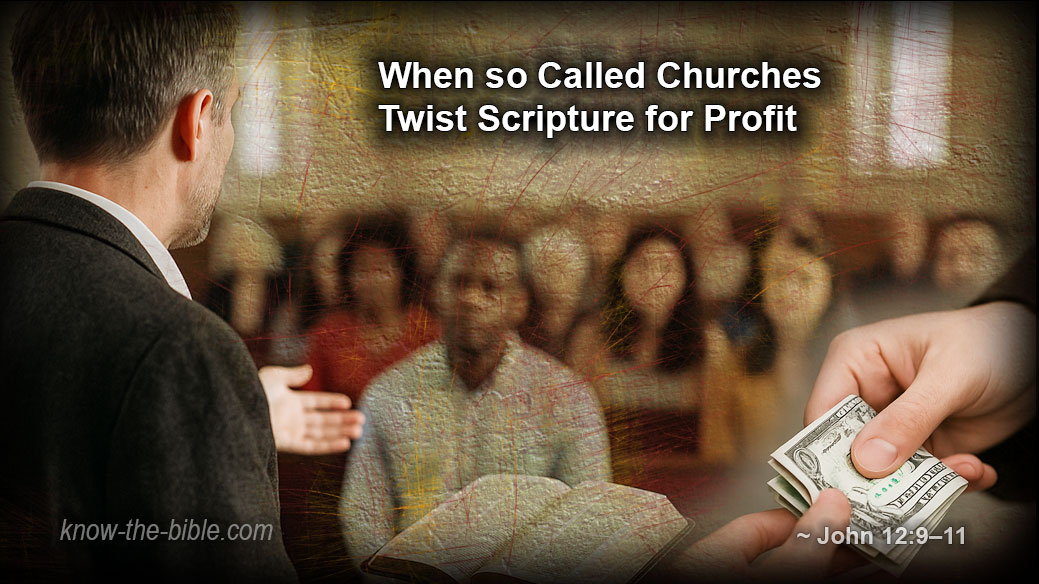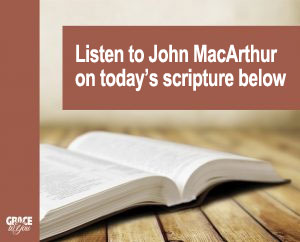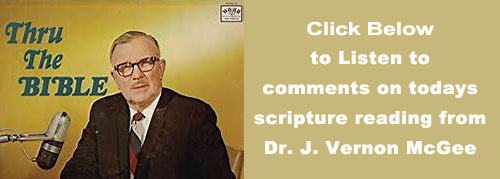When so Called Churches Twist Scripture for Profit
What 2 Corinthians 9 Really Teaches
As it is written, “He has distributed freely, he has given to the poor; his righteousness endures forever.”
~ 2 Corinthians 9:9
There’s a powerful promise in 2 Corinthians 9 that has nothing to do with luxury, riches, or personal gain, but everything to do with righteousness, generosity, and eternal fruit. Sadly, many preachers today have twisted this passage to justify a false gospel of financial prosperity, teaching that if you give money to their ministry, God will multiply your bank account. That is not what the passage says, and when you read it in context, the truth becomes clear.
Paul writes, “And God is able to make all grace abound toward you, that ye, always having all sufficiency in all things, may abound to every good work” (2 Corinthians 9:8). The promise here is not about getting rich, but about having enough, having what you need so you can continue doing good. The Greek word translated “sufficiency” is autarkeia, meaning contentment or having enough, not excess. God promises to supply what is necessary for a godly life and for blessing others, not for padding bank accounts.
Verse 9 is the key that prosperity preachers often avoid: “(As it is written, He hath dispersed abroad, he hath given to the poor, his righteousness remaineth for ever.)” This is a quote from Psalm 112:9, showing that the truly righteous person is one who gives freely to those in need. The focus is not giving to make yourself rich, but giving to the poor. The righteousness that endures forever is connected to sacrificial generosity, not selfish gain.
Paul continues in verse 10, “Now he that ministereth seed to the sower both minister bread for your food, and multiply your seed sown, and increase the fruits of your righteousness.” Again, it’s about the fruit of righteousness, not financial return. God blesses us so we can be a blessing. That seed is not for building empires or buying luxury vehicles, but for furthering good works, helping the needy, and glorifying God. As Proverbs 19:17 says, “He that hath pity upon the poor lendeth unto the LORD, and that which he hath given will he pay him again.”
The sad truth is, many churches today flip this on its head. Instead of using the church to serve the poor, they pressure the poor to serve the church. Some even claim that the reason someone is financially struggling is because they haven’t “sown enough seed” into the offering plate. That is spiritual manipulation. It’s not just wrong, it’s wicked. God never tells the poor that they cannot afford not to give. That’s man’s greed speaking, not God.
Nowhere in Scripture does God say to give with the expectation of personal wealth. In fact, Jesus warned, “Take heed, and beware of covetousness, for a man’s life consisteth not in the abundance of the things which he possesseth” (Luke 12:15). The early church shared freely, cared for widows and orphans, and distributed to everyone as they had need (Acts 2:45, James 1:27). That’s biblical giving.
If a church refuses to care for the poor, but instead demands money from them in the name of “faith,” it is not following Christ. The Bible is clear, God loves a cheerful giver (2 Corinthians 9:7), but He does not love exploitation in His name. True giving is born from a heart transformed by the gospel, not pressured by guilt or driven by the false promise of wealth.
If your church skips verse 9, ask why. And if the only people prospering are the ones holding the microphone, it’s time to open your Bible and walk away. God’s Word was never meant to be a business model, it is truth, and that truth sets us free from sin, from greed, and from deception.
Song of Solomon 5:1-8:14
2 Corinthians 9:1-15
Psalm 51:1-19
Proverbs 22:24-25
Read Today’s Scripture – Click Here
Click on the Play Button below to Listen to Today’s Scripture
Old Testament: Psalm 51:1-19

Cast me not away from your presence, and take not your Holy Spirit from me.
Have mercy on me, O God, according to your steadfast love; according to your abundant mercy blot out my transgressions. Wash me thoroughly from my iniquity, and cleanse me from my sin! For I know my transgressions, and my sin is ever before me. Against you, you only, have I sinned and done what is evil in your sight, so that you may be justified in your words and blameless in your judgment. Behold, I was brought forth in iniquity, and in sin did my mother conceive me. Behold, you delight in truth in the inward being, and you teach me wisdom in the secret heart. Purge me with hyssop, and I shall be clean; wash me, and I shall be whiter than snow. Let me hear joy and gladness; let the bones that you have broken rejoice. Hide your face from my sins, and blot out all my iniquities. Create in me a clean heart, O God, and renew a right spirit within me. Cast me not away from your presence, and take not your Holy Spirit from me. Restore to me the joy of your salvation, and uphold me with a willing spirit. Then I will teach transgressors your ways, and sinners will return to you. Deliver me from bloodguiltiness, O God, O God of my salvation, and my tongue will sing aloud of your righteousness. O Lord, open my lips, and my mouth will declare your praise. For you will not delight in sacrifice, or I would give it; you will not be pleased with a burnt offering. The sacrifices of God are a broken spirit; a broken and contrite heart, O God, you will not despise. Do good to Zion in your good pleasure; build up the walls of Jerusalem; then will you delight in right sacrifices, in burnt offerings and whole burnt offerings; then bulls will be offered on your altar.
~ Psalms 51:1-19
It is clear from David’s writings that he does not blame anyone else for his mistakes (like so many do nowadays.) and does not attempt to justify them. These words display absolute humility and anguish over sin. David appeals to God’s mercy and love, knowing he can be forgiven as he is truly repenting.
We come to say, “Lord, the things that I want may be worldly things and earthly things and passing things and temporal things and even sinful things and even corrupting things; rather, I want what you want for me, the highest and the best and the good. But I confess that none of that is in me.”
If I were to sum up what David was feeling, I might say it like this: Sin had made him dirty, and he wanted to be clean. Guilt had made him sick, and he wanted to be well. Disobedience had made him lonely, and he wanted to be reconciled. Rebellion had made him fearful, and he wanted to be pardoned.
Churches that talk about only good things, don’t ever speak of sin, don’t ever lead the people to serious contemplation and confession of sin, may not be Christians at all. They may be churches but not made up of Christians or if some are Christians, they are of the most immature kind.
The Believer’s Confession of Sin – Psalm 51
New Testament: 2 Corinthians 9:1-15
Summary: The Collection for Christians in Jerusalem, The Cheerful Giver
But this I say, He which soweth sparingly shall reap also sparingly; and he which soweth bountifully shall reap also bountifully. Every man according as he purposeth in his heart, so let him give; not grudgingly, or of necessity: for God loveth a cheerful giver.
~ 2 Corinthians 9:6-7
so let him give; of his own will and free choice, from his very heart; not as directed and forced by others, but according to his own counsel and determination:
or of necessity; of force, by coaction, being obliged to it by the influence, example, or commands of superiors; or through the powerful motives, or prevailing entreaties of others; for without these, men, according to their abilities, should give of themselves freely and liberally:
Overview: 2 Corinthians – Click Here
2 Corinthians 08 – 10 – Click Here
Views: 1



